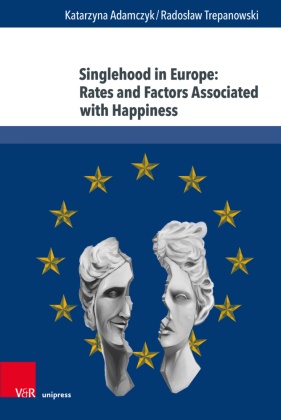Singlehood in Europe: Rates and Factors Associated with Happiness
| Verlag | V&R unipress |
| Auflage | 2023 |
| Seiten | 116 |
| Format | 16,0 x 1,1 x 23,7 cm |
| Gewicht | 297 g |
| Artikeltyp | Englisches Buch |
| ISBN-10 | 3847115324 |
| EAN | 9783847115328 |
| Bestell-Nr | 84711532A |
The authors present the rates of single people based on the data from the European Social Survey and shows how various factors, such as subjective general health, relate to European singles' happiness.
How many single people live in Europe, and are they happy?
Recent research on singlehood shifts from the previous concentration of negative life outcomes of single status towards a concentration on positive outcomes. Further, most studies concerning singlehood have been performed in North American countries. Therefore, exploring factors related to single people's happiness and the specificity of singlehood in other than North American countries is becoming increasingly important. The authors utilize the data collected in the European Social Survey (ESS) in the period of 16 years (2002-2018) to determine the shares of never-married single adults in Europe and explore various factors associated with the happiness of single adults across 33 European countries. This monograph shows the review of definitions of singlehood, the rates of single individuals in each of the 33 European countries and across nine ESS rounds, and the socio-demographic profile of singles. It also presents the results of the analyses concerning the subjective well-being and general health of single people, basic human values, and religion.

